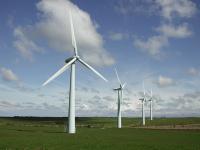Over at the Clean Coal Front Group Soapbox (er, blog), ACCCE Vice President of Communications Joe Lucas has a new post entitled:
All New Technologies Take Time to Develop
He basically claims that wind and solar power projects take an indefinite amount of time to become fully operational for commercial use, and therefore we shouldn’t be criticizing him and the “clean coal” industry for how long it will take carbon capture and sequestration (CCS) to become commercially feasible.
Simply put, his post is flat-out disingenous.
Here’s Lucas’ post:
And they’re right. We’re going to need every resource we’ve got to meet our future energy needs – wind and solar included. But just like clean coal technology, these renewables also need time for development. As we’ve discussed here before, we’re a long way from mass implementation of wind and solar power – there are still some kinks to work out.
Just this week it was announced that Oregon regulators have approved construction of a new wind farm that developers say could be the world’s largest. The only problem? They don’t know when it will be operational.
As we said, these things take time.
I contacted Jérôme Guillet, a wind energy expert, who has written multiple articles for the reality-based blogosphere. He had this to say about Mr. Lucas’ post:
The article to which Lucas links is behind a subscription wall, so we have to do our own search for news about the Oregon wind farms. The wind farm is scheduled to go online in about two years, which goes along with Guillet’s statement.
Guillet continues:
Basically, if there are (or had been) any uncertainties with the Oregon project, they would have nothing to do with technical uncertainties; they would have to do with business logistics uncertainties.
Guillet nails it. Lucas’ assertions are silly. In fact, they are wrong. He insults his readers’ intelligence by assuming we’ll fall for his claims, have no ability to do internet searches, read other blogs, and think critically.
Cross posted on Coal is Dirty.
Subscribe to our newsletter
Stay up to date with DeSmog news and alerts






